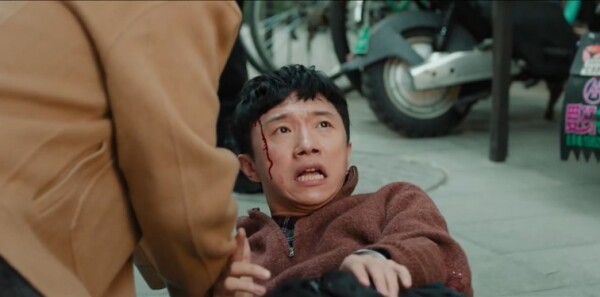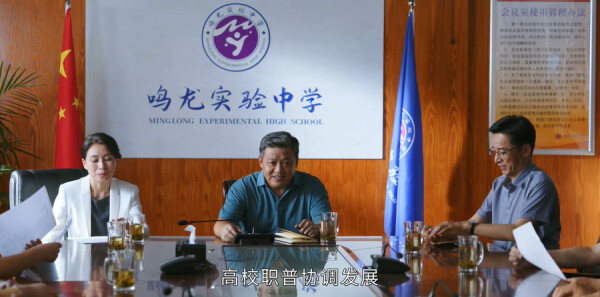The Fortune Cookie Chronicles《The Fortune Cookie Chronicles》
- 书评
- 2023-03-26 08:11:26
- 65
September 16
The Fortune Cookie Chronicles
This book successfully pursued some puzzles I have had for a long time including of course General Tso’s Chicken and fortune cookies. It tried to trace the development of Chinese food in America from non-existence into a quintessential American institution that is as American as the apple pie. For anyone who has lived and travelled in America as I did the book will read like a nostalgic journey back to the good old days in US strung together by various encounters with Chinese food which although felt totally mundane at the time now re-emerged as warm meaningful and almost irreplaceable.
The book starts with the extraordinary story of one PowerBall drawing which ended up with 110 winners all over the country all guided by the lucky numbers they found on their fortune cookies. The author went out to track down every winner. From there came the story about how ubiquitous Chinese food is in the American life. There are chapters on General Tso’s chicken the most popular dish in Chinese restaurant (actually not too far away from becoming the national dish for US) on the restaurant menus in NYC that are as invasive as cockroaches on the history of fortune cookies (turns to be Japanese in origin) the history of chop suey the Jewish community’s love affair with Chinese food the white fold-up boxes for Chinese takeaways and on restaurant workers. But near the end it digresses into a search for the best Chinese restaurant all over the globe. This is a meaningless mission a total waste of resources and disservice to an otherwise coherent and compact book.
The historical investigations into the origins of General Tso’s chicken the fortune cookies and chop suey are informative but not really useful. What is more valuable is the more sociological investigation on various social processes or relations that manifest themselves through Chinese food. Some of the stories I’m familiar with for example the ordeals illegal immigrants from Fuzhou went through to get to US and make some $2000 a month delivering Chinese food exemplified by the Golden Venture incident. Peter Kwong’s Forbidden Workers did a more thorough job on this.
But the story on American Jews’ love affair with Chinese food is quite surprising to me. I had thought that the liberal use of lard in Chinese food would make it problematic for Jews. But turns out not. To early Jewish immigrants eating Chinese food not only helped them to shed their image of country-hicks (from Eastern Europe) and become cosmopolitan but also gave them a sense of superiority and belonging when Chinese immigrant treated them simply as “White”—or in Philip Roth’s words “a big-nosed variety of WASP”. Now I understand why at Christmas Eve it was so difficult to get a table at that Seven Seas restaurant in Rockville—all those other diners competing for tables with us were most likely Jews!
The author went beyond Forbidden Workers by following how lives of restaurant workers unwind in US—another new frontier for me. I already knew that East Broadway in Manhattan had become the new Chinatown and the epicenter for the newly arrived Fuzhouness immigrants. What I didn’t know is how effectively it now works as a labor market and how influential it is to the entire industry of Chinese restaurant. Immigrant workers start from there and go out to thousands of zip codes all over US to work in restaurants. To facilitate the movement of these labor various long-distance bus services emerged and developed into what we now know as the Chi-Chi buses.
Chinese restaurants in America are a gold mine for sociological researches. How an industry filled with unrelated small and independent operations become so highly standardized? How this standardized mode of operation in Chinese restaurant and the national labor market serving it affect lives of new immigrants? How intra-Chinese ethnicity comes into play in the restaurant business now that Fuzhou immigrants are the dominant group? How innovations come about in such an industry as shown in the growth of mega-buffet-restaurant like East Buffet? What is the life experience of these itinerant workers who move from one strange town to another in a country totally foreign to them? If I were still a graduate student I would start my career from there.
I have to say I didn’t fully realize the importance and ubiquity of Chinese food in American life until I read this book. I probably have experienced every aspect of Chinese food in America personally: from that small one run a Chinese from Korea in Alaska to 宝来宫on 72 Street Forest Hills. But I didn’t reflect upon how symbolic the things associated with Chinese restaurant have become for the American experience: the fortune cookies the chopsticks in red paper wrapping the white take-out boxes the soy-sauce packets and dishes like General Tso’s chicken which not surprisingly were Kevin and Chris’s favorite. My experience with Chinese food in America started with a false sense of familiarity ba
As my sojourning in America prolonged I then started to experience Chinese food in America as a newly acquainted but easily close friend. We began to search for it as our rescue and our last resort when traveling in culinary waste land which was pretty much everywhere in the US outside the big cities. Despite our resolution to try to finally stay away from Chinese restaurant in a trip we still crawled back to a dimly lit chifa in Cuzco adorned with red lanterns that made it look more like a brothel than a restaurant. The dishes were both familiar and horrible just like what you would expect from a Chinese restaurant in a small American town but the feeling was warm and the sense of homecoming palpable. No matter how bad a Chinese meal is at least we can always confidently laugh at it and at the same time warmly savor the pride of being Chinese even though that broccoli beef may have been cooked up by a Quechua-speaking Peruvian who thought their deposed president Fujimori was a Chino.
本文由作者笔名:小小评论家 于 2023-03-26 08:11:26发表在本站,文章来源于网络,内容仅供娱乐参考,不能盲信。
本文链接: http://www.w2mh.com/show/26260.html
 小小评论家
小小评论家






















